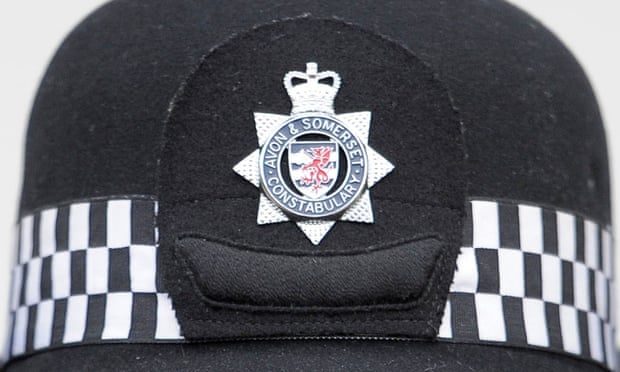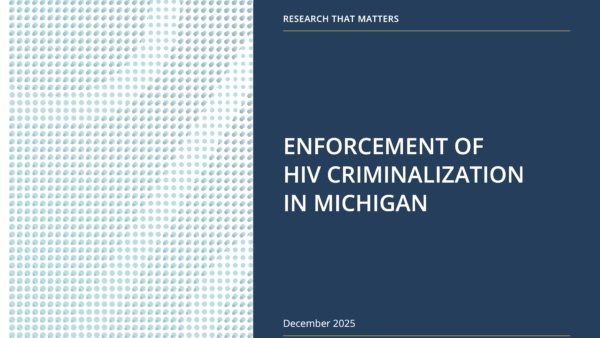
Police accused of exaggerating risks of HIV to introduce spit guards
Force plans to issue guards to officers from January, saying people infected with blood-borne viruses use spitting as a weapon
A police force has been accused of fear mongering and stigmatising sufferers of hepatitis C and HIV by playing up the risks of transmission of blood-borne viruses as a reason to introduce spit guards.
Avon and Somerset police announced their plan to issue spit guards to all operational officers from January next year. “Each day we face being spat at, putting us at risk of HIV, hepatitis and tuberculosis and the degrading assault can have a lasting psychological impact,” said Assistant Chief Constable Stephen Cullen.
Spit guards are tight mesh hoods that officers can pull over the heads of suspects resisting detention to stop them from spitting or biting. They are used by 25 forces but have been criticised by human rights groups.
Avon and Somerset’s announcement came with an account by an officer, named John, who said people infected with blood-borne viruses use spitting as a “weapon”. He described an incident in which he arrested a drunk woman who had hepatitis C after she attacked a paramedic.
“She was continually spitting, spit that was bloody. It was disgusting; she was trying to infect us,” he said, recounting how officers donned riot gear to protect themselves as they stripped the detainee for her safety. “After the shift we all went home to our kids wondering what we were taking home.”
Rachel Halford, the deputy chief executive of the Hepatitis C Trust, said she agreed that police should be protected from health risks, but rejected the force’s implication that the virus could be transmitted through spitting.
“Hepatitis C is a blood-borne virus and is therefore only transmitted through blood-to-blood contact. The virus cannot be transmitted via spit,” she said.
“Stigma and misinformation about hepatitis C and other blood-borne viruses is a key challenge faced by patients, who are already disproportionately from the most marginalised and disadvantaged groups in society. Many patients report feeling ‘dirty’ and experiencing social exclusion due to misinformation about transmission risks.”
Kat Smithson, the director of policy and campaigns at NAT (National Aids Trust), said Avon and Somerset’s claims about HIV and hepatitis C were wrong and stigmatised people with the conditions.
“HIV is irrelevant to the debate about spit hoods because spitting simply is not an HIV transmission route,” she said. “In the history of the epidemic, there has never been a case of HIV being passed on through spitting, even when the spit contains blood.”
According to Avon and Somerset police, the restraints will be used only when a person threatens to spit, has attempted to spit or has already spat, and only when officers’ body-worn cameras are switched on.
Despite those safeguards, Deborah Coles, the director of Inquest, raised concerns over their introduction to another police force. “There should be no doubt spit hoods are a use of force and have the potential to cause acute trauma and injury,” she said.
“We know from our work that mental health concerns or other difficulties often sit behind agitated behaviour. Our fear is spit hoods will become the default response and used against vulnerable detainees.
“We had hoped that after the restraint death of James Herbert, Avon and Somerset police would have prioritised safer, more humane policing methods with a focus on de-escalation and detainee welfare.”
Avon and Somerset’s police federation backed the decision, which the force said was in support of the national federation’s proposed assault on emergency workers (offences) bill.
Vince Howard, the chairman of Avon and Somerset police federation, said: “This option affords those officers, who are increasingly subject to this abhorrent act, the opportunity to protect themselves from the risks of serious communicable diseases.”
Data for spitting incidents reported on the Welfare Information Form shows there have been 79 spitting incidents out of 487 recorded assaults since April, which a force spokesman said was a sharp increase on previous reports.









